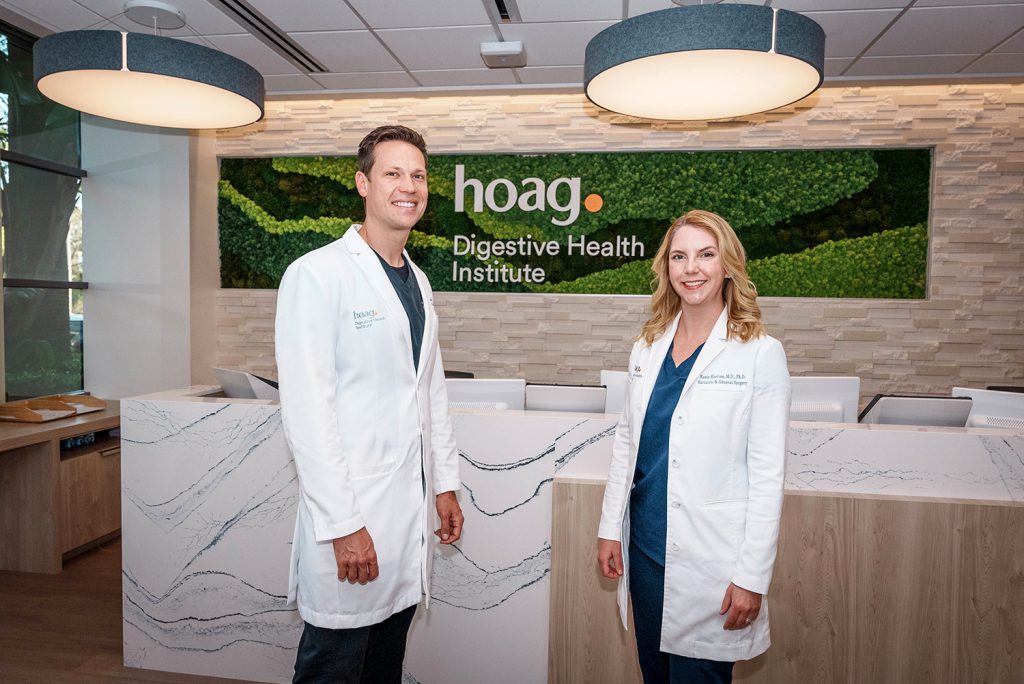
Hoag Hospital’s Bariatric Surgery Weight Loss Program within its Digestive Health Institute has earned accreditation as a Comprehensive Center from the Metabolic and Bariatric Surgery Accreditation and Quality Improvement Program (MBSAQIP).
A joint program of the American College of Surgeons (ACS) and the American Society for Metabolic and Bariatric Surgery (ASMBS), the MBSAQIP sets national standards for bariatric surgery centers with a goal of advancing safe, high-quality care for weight-loss surgery patients.
“We are honored to receive recognition for Hoag’s dedication to meeting the needs of metabolic and bariatric surgery patients by providing multidisciplinary, high-quality, patient-centered care,” said Adrian Dobrowolsky, M.D., director of Hoag’s Bariatric Surgery Weight Loss Program. “Our team offers a whole-person approach to weight loss to ensure each patient has the optimal support to embrace their new lifestyle.”
Established in 2021, the Bariatric Surgery Weight Loss Program at Hoag takes a holistic approach to the disease of obesity, with a multidisciplinary team providing a full spectrum of bariatric care including guidance on nutrition and exercise as well as psychological support.
To be accredited as a Comprehensive Center, a bariatric surgery program must undergo an independent, voluntary and rigorous peer evaluation in accordance with nationally recognized bariatric surgical standards. This accreditation not only promotes uniform benchmarks, it supports continuous quality improvement.
The Centers for Disease Control and Prevention (CDC) estimates about 93 million adults in the United States are affected by obesity and that number continues to increase. Bariatric surgery has proven to be effective in the reduction of comorbid conditions related to obesity, such as type 2 diabetes, hypertension, cardiovascular disease, and cancer, among other health risks.
More than 30 years of clinical data have demonstrated the significant health benefits of bariatric surgery for appropriate patients, including its reversal of multiple diseases and conditions.
“Many patients are unsure if surgery is the right option for them. We work with individuals, conducting a personalized consultation with each patient to thoroughly discuss their condition and options and determine together the best next step in their weight-loss journey,” said Katherine Blevins, M.D., Ph.D., a fellowship-trained Hoag bariatric surgeon skilled in the most advanced, minimally invasive laparoscopic and robotic techniques.
For more information about the Bariatric Surgery Weight Loss Program within Hoag’s Digestive Health Institute, visit www.hoag.org/weightloss.
